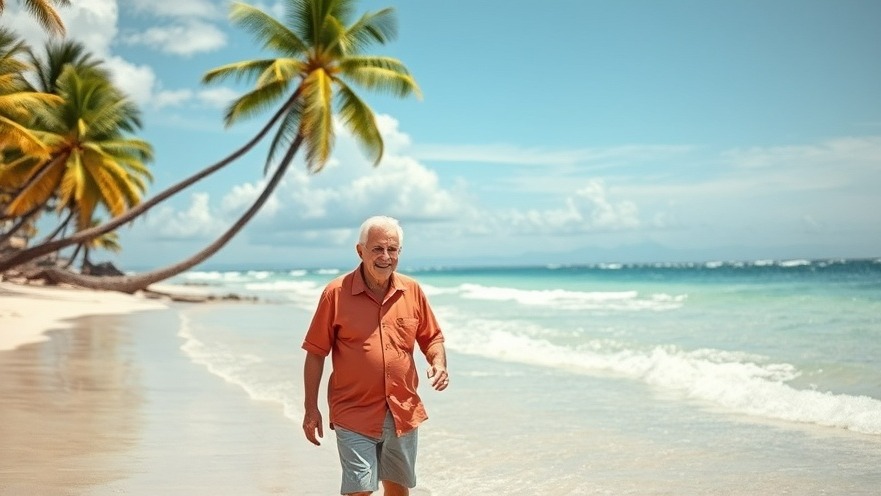
Are You Ready for Retirement in the Heat?
As retirement approaches, many envision trading in their snow shovels for sun hats and enjoying leisurely days in the sunshine. However, recent research suggests that this dream may come with a hidden cost: accelerated aging due to extreme heat. For those looking to relocate to warmer climates, it’s crucial to understand how environmental factors can impact not just your quality of life, but your biological age.
The Science Behind Heat and Aging
A compelling study published in the journal Science Advances tested over 3,600 participants aged 56 and older across the U.S. It discovered that seniors living where extreme heat is prevalent experience greater biological aging compared to their cooler-climate counterparts. The researchers focused on epigenetic changes—modifications in how genes are expressed—which occur due to exposure to high temperatures. This marks a significant finding that advises against where to settle down post-retirement.
Impacts of Heat Exposure
Analyzing data from the National Weather Service, the study revealed that just seven days of significant heat (defined as over 90°F) could age individuals nearly one year biologically. For those in areas experiencing these heat days on a more constant basis, such as Phoenix, the biological aging was up to a startling 14 months greater. This accelerated aging is not just a temporary phenomenon; prolonged exposure has lasting implications on overall health.
The Role of Humidity
While many consider temperature alone when assessing a location's comfort, it's essential to factor in humidity. Jennifer Ailshire, a senior author of the study, notes, "Older adults don’t sweat the same way and hence struggle with self-cooling.” Consequently, regions with high humidity coupled with heat can amplify the physical stress on the body, exacerbating the aging process. This revelation serves as a crucial reminder for potential retirees to take nuanced environmental factors into account.
Understanding Biological vs. Chronological Age
Biological age reflects how well the body’s systems function, which contrasts with chronological age based solely on birthdate. When biological age exceeds chronological age, the risk of disease and mortality escalates. This emphasizes the need for retirees to carefully evaluate health risks associated with their chosen locale. If relocating to a warmer climate, amenities supporting older adults—such as shaded areas and access to cooling facilities—should influence the decision.
Future Trends in Retirement Relocation
Considering the growing expectations of climate change, patterns of heat days are anticipated to increase, further altering the prospect of retiring to sunnier areas. Thoughtful urban planning and improved infrastructure are pivotal in addressing these concerns. Stakeholders, including city planners and health authorities, must advocate for heat mitigation strategies like planting trees and designing community spaces with shade to protect vulnerable populations.
Mitigation Strategies for Healthier Retirement
It’s essential for retirees to mitigate the effects of heat exposure to protect their long-term health. Simple strategies include:
Seek Shade: Choose neighborhoods with ample green space and trees.
Stay Hydrated: Prioritize fluid intake, especially on hot days.
Join Community Programs: Engage in local resources that focus on health and wellness for older adults.
Monitor Heat Alerts: Stay informed about local weather warnings to prepare for extreme conditions.
The Importance of Patient-Centric Care
As concierge medical practices prioritize patient relationships and comprehensive care, understanding the implications of climate on health becomes paramount. Creating wellness programs that educate patients on the health risks associated with extreme climates can position practices as leaders in patient education. Equipping patients with knowledge about both environmental risks and wellness strategies fosters trust and encourages proactive health management.
Your dream of retirement in a sun-soaked paradise may still be achievable; however, it's essential to factor in the potential for accelerated aging due to environmental conditions. As a community dedicated to enhancing health outcomes, we encourage you to consider how geographical decisions can impact your biological wellness—ensuring that your golden years truly shine.
 Add Row
Add Row  Add
Add 






Write A Comment